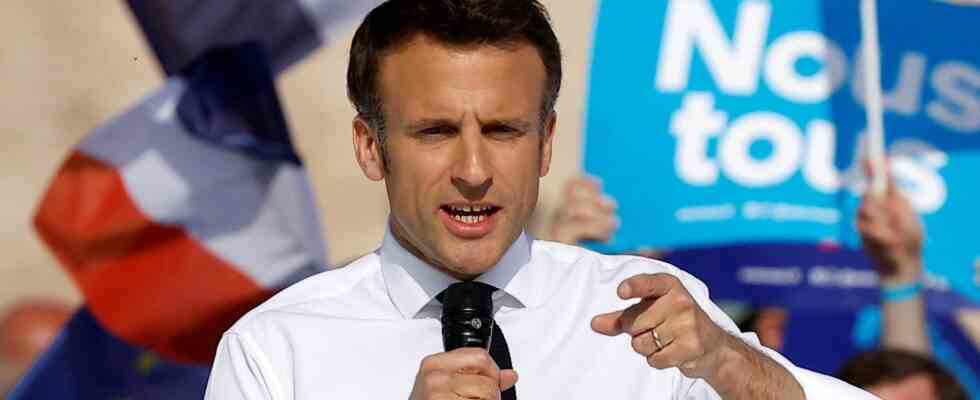Status: 04/22/2022 04:13 a.m
The financial world is also looking forward to France on Sunday – and to who will win the presidential election. The hope rests on a victory for incumbent Emmanuel Macron.
From a stock exchange point of view, it is also crucial who will win the election in France on Sunday. After Germany, France is the largest economy in the euro zone. The two neighboring countries are closely intertwined through their trade relations. Last year, France was the third largest buyer of German exports.
Should challenger Marine Le Pen win the election on Sunday, the relationship could change significantly. “I think that with Le Pen, France would become more protectionist – even within Europe,” says economist Stefan Mütze of the Landesbank Hessen-Thüringen, or Helaba for short. “They no longer want the free flow of energy, and they no longer want joint armament projects with Germany.”
The German-French aviation and armaments group Airbus had already warned against going it alone. According to the company, which is listed on the stock exchanges in Paris and Frankfurt, no single country in Europe will have the financial or technical means to implement such projects on its own.
France’s economy benefits from Macron
Other DAX companies are also likely to be very interested in “keep it up” under President Emmanuel Macron. After all, according to Statista, goods worth more than 100 billion euros were exported from Germany to France last year. The most important goods included automobiles, steel and chemical products; Products that the heavyweights in the DAX produce.
But the French economy has also benefited from Macron’s policy, analyzes Helaba economist Mütze. “France is in a better position today than it was in 2017. Incidentally, also in terms of growth – better than Germany.” The pre-corona level has already been reached.
That in turn is due to the fact that France has improved the competitiveness of companies, says Mütze – for example by lowering the production tax for companies. And so it is no wonder that the leading French index Cac 40 has risen by more than 30 percent since Macron took office.
Is the economy playing into Le Pen’s hands?
So the favorite on the financial markets is clearly Macron. But the current economic situation is playing into the hands of populists like Le Pen – especially the rise in inflation, believes business journalism professor Henrik Müller from the TU Dortmund. Le Pen says the cost of living is rising only because elites and technocrats who run the institutions have failed and are exploiting the people.
“That’s classic populism,” says Müller. “In that case, inflation helps the populists because it undermines trust in state institutions.” But the promises of the right-wing populist – for example, to reduce the value added tax to zero for 100 everyday products – cannot be counter-financed from the point of view of leading business representatives. Experts put the costs at 100 billion euros.
Le Pen would thus further increase the country’s already high debt ratio. This would result in higher financing costs for France, which in turn could increase the risk premium for government bonds in France and in the eurozone as a whole. A sigh of relief should be heard on the European stock exchanges the day after the election should Macron remain president.
How financial markets view the French election
Bianca von der Au, HR, April 21, 2022 6:57 p.m

